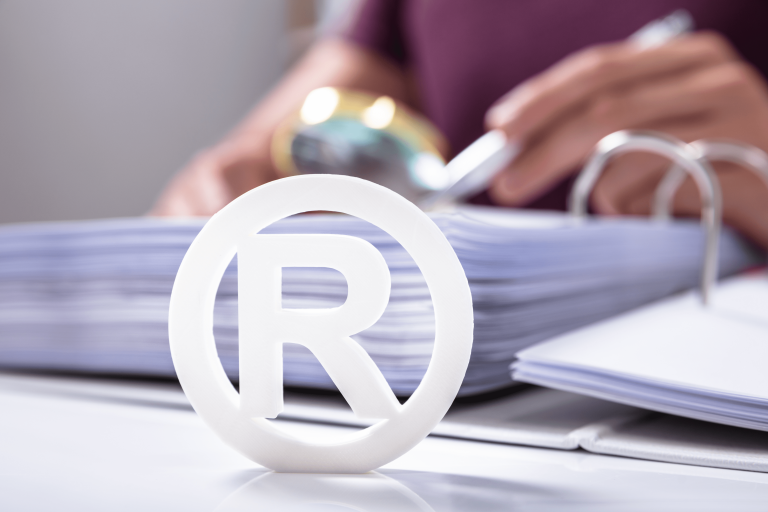Are you ready to start your own business in Florida? Do you have a great idea for a product or service that you want to turn into a profitable business? Do you want to be your own boss and enjoy the freedom and flexibility of entrepreneurship? Do you want to take advantage of the opportunities and benefits of doing business in Florida? If the answer to all of these questions is yes, then this article is for you.
Starting your own business in Florida can be an exciting and rewarding journey; however, it can also be a challenging and complex process. To help you navigate it successfully and smoothly, we have prepared this guide that outlines the essential steps you need to follow, so read on to learn what you need to know.
How to Start Your Own Business in Florida
Step 1: Choose a Business Structure
The first step you need to take to start your own business in Florida is to choose a business structure that suits your needs and goals. A business structure is the legal form of your business, which determines how it will be taxed, regulated, and operated. Choosing the right business structure is important because it will affect how you run your business, as well as how you protect your personal assets from business risks.
There are different types of business structures available in Florida, such as sole proprietorship, partnership, corporation, limited liability company (LLC), etc. Each type has its own advantages and disadvantages, depending on factors such as the size, nature, and complexity of your business, the number of owners, the level of control and flexibility you want to have, the amount of paperwork and compliance you are willing to handle, etc.
To choose the best business structure for your situation, you should consult with a professional attorney who specializes in business formation and can help you understand the pros and cons of each type of business structure and advise you on the best option based on your goals and needs.
Step 2: Create a Business Plan
One of the most important steps you need to take to start a business is to create a business plan that outlines your goals and strategies for your business. A business plan is essentially a document that describes what your business is, what it does, how it operates, who it serves, how it competes, how it makes money, and how it grows. Creating a business plan is important because it will help you clarify your vision and mission for your business, as well as guide your actions and decisions along the way.
A business plan typically consists of several sections, such as:
- Executive summary: This is a brief overview of your business plan that summarizes its main points and highlights its strengths and opportunities.
- Company description: This is a detailed description of your business that explains its history, structure, ownership, location, products or services, target market, competitive advantage, etc.
- Market analysis: This is an in-depth analysis of the industry and market that your business operates in or plans to enter. It includes information such as market size, trends, growth potential, customer segments, needs and preferences, competitors, strengths and weaknesses, opportunities and threats, etc.
- Marketing plan: This is a comprehensive plan that outlines how you will promote and sell your products or services to your target customers. It includes information such as marketing objectives, strategies, tactics, channels, budget, timeline, etc.
- Financial plan: This is a realistic projection of the financial performance and position of your business for the next three to five years. It includes information such as income statement, balance sheet, cash flow statement, break-even analysis, funding sources and needs, etc.
To create a business plan that is effective and convincing, you should use reliable data and evidence to support your claims and assumptions. You should also use clear and concise language to communicate your ideas and goals. You should also review and update your business plan regularly to reflect any changes or developments in your business or market.
Step 3: Register Your Business with the Department of State
Registering your business with the Department of State is an essential step, as it will officially register your business entity with the state and establish its legal identity.
The way you register your business with the Department of State depends on the type of business structure you have chosen for your business, as each type of business structure has its own requirements and procedures for registration.
For example, if you have chosen a corporation or an LLC, you need to file articles of incorporation or articles of organization with the Department of State. These are documents that contain basic information about your business entity, such as its name, address, purpose, duration, etc. You also need to pay a filing fee and appoint a registered agent who can receive legal notices on behalf of your business.
To register your business with the Department of State successfully, you need to follow the instructions and guidelines provided by the Department of State on its website. You can also use the online filing system or download and print the forms from the website. However, the best way to do it is to consult with a business formation attorney who can help you prepare and file the documents correctly and efficiently as well as ensure no mistakes are made.
Step 4: Register Your Fictitious Name
Another step that you may need to take to start your own business in Florida is to register your fictitious name (also known as “doing business as” or DBA) with the Department of State. This is optional but recommended if you want to use a different name for your business than your personal name or the name of your business entity.
Registering your fictitious name with the Department of State will allow you to use that name for your business activities and identify yourself to the public. It will also protect your brand from being used by others without your permission.
To register your fictitious name with the Department of State, you need to fill out an application form and pay a registration fee. You also need to advertise your intention to register your fictitious name in a newspaper in the county where your principal place of business is located.
To register your fictitious name successfully, you need to make sure that it is unique and distinctive. You also need to make sure that it does not infringe on any existing trademarks or trade names. You can check the availability of your desired fictitious name by using the online search tools provided by the Department of State.
Step 5: Obtain All Required Licenses and Permits
To operate a business in Florida, you must first obtain the necessary licenses and permits that allow you to operate legally and comply with federal, state, and local regulations. Licenses and permits are documents that grant you permission to perform certain activities related to your business. Obtaining licenses and permits is important because it will ensure that you follow the rules and laws that apply to your industry and location.
There are different types of licenses and permits that may be required, depending on factors such as the type, size, and location of your business, the products or services you intend to offer, the number and nature of employees you will have, etc. Some of the most common types include:
- Business license: This is a general license that authorizes you to conduct any type of lawful business activity within a certain jurisdiction. You may need to obtain a business license from the county or city where your business is located or operates.
- Professional license: This is a specific license that certifies your qualifications and skills to perform certain regulated professions or occupations. You may need to obtain a professional license from the state or a professional board if your business involves activities such as accounting, engineering, law, or medicine.
- Occupational license: This is a specific license that regulates certain types of businesses or activities that pose potential risks or hazards to public health, safety, or welfare. You may need to obtain an occupational license if your business involves activities such as food service, construction, or cosmetology.
- Environmental permit: This is a specific permit that regulates the impact of your business on the environment and natural resources. You may need to obtain an environmental permit if your business involves activities such as air emissions, water discharge, or waste disposal.
To obtain the licenses and permits you need for starting your own business in Florida, you should consult with a professional attorney who can help you identify and apply for the appropriate documents as well as help you keep track of the deadlines and fees involved in the process.
Are You Ready to Start Your Own Business in Florida? We Can Help You
Starting your own business in Florida can be a rewarding but challenging experience. It requires careful planning, preparation, and execution. That is why you should work with Jurado & Associates, P.A. We are a full-service law firm that specializes in business formation. We have extensive experience and expertise in helping clients start their own businesses in the Sunshine State, and we are committed to providing you with personalized attention and exceptional service. We will work closely with you to understand your needs and goals and tailor our solutions accordingly. We will also communicate with you regularly and keep you informed of every step of the process.
We are confident that we can help you start your own business in Florida successfully. We are ready to assist you with any questions or concerns you may have, so do not wait any longer. Call us today at (305) 921-0976, email us at [email protected] to schedule an initial consultation with one of our experienced attorneys.






